Phases of the Moon
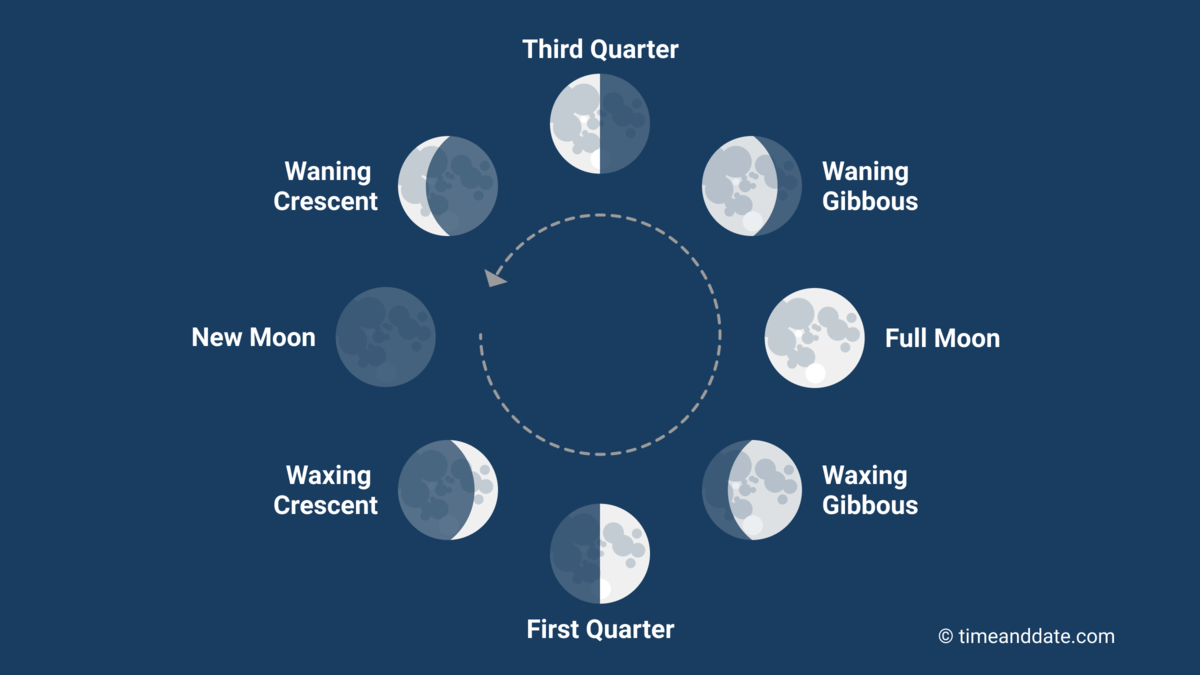
- The moon phase begins with the Dark Moon, or New Moon which means no part of it is illuminated by the sun, so it is not visible to us on earth. (Look at the diagram above at the 9 o’clock position. Notice it is dark?)
- Now, remember the movie Karate Kid? Mr. Miyagi taught the Kid two phrases, ” wax on” “wax off”. We only want to remember ” wax on”. As the moon “grows in visibility”, this is called “waxing“. It becomes a sliver or crescent in appearance. I think of it like this, the moon’s visibility is “waxing on” (“wax on”). At this phase the light will be on the RIGHT SIDE of the moon and will continue to be so when you look up at it. Phase 2 is called a “waxing crescent.” It is about 7 o’clock on the chart.
- As the moon continues to move in relation to the sun and the earth, and becomes more visible, the moon moves into the first quarter, or waning half-moon. Notice that the light is still on the RIGHT SIDE of the moon. Phase 3 can be seen at 6 o’clock on the chart.
- Next, remember the moon is still waxing (growing, “wax on”) but now the moon is no longer a crescent, and has also grown even beyond the size of half. This is now called a “gibbous“, moon, a “waxing gibbous” moon. Light still is on the RIGHT SIDE. Phase 4 appears at the 5 o’clock position on the chart.
- Time has passed on from the beginning of the month (new moon-dark moon) to the middle of the month. At 3 o’clock on the chart we see the Full Moon. The light is full, or at maximum illumination.
- From this point, the moon begins to decrease in light. This process is called “waning“. Now you will notice the remaining light of the moon is now on the LEFT SIDE of the moon. This phase appears at approximately 1 o’clock. on the chart. Notice the area of light with this phase is greater than a quarter (or half) moon. So once again, it is a ” gibbous” moon, but because it is decreasing in light, it is now called a ” waning gibbous” (light is ” waning”, or going away.)
- At the position of 12 o’clock. the moon has moved into the next phase. The light has diminished into a third quarter moon (or waning half moon) and the light appears on the LEFT SIDE.
- The moon continues to decrease in light. The light, still on the left side, has reduced to “crescent”. Because the moon is reducing in light, it is a ” waning crescent.“. and we can see this at the position of 10 o’clock on the chart.
- Now the moon is dark again. Back to the 9 o’clock position. The Dark Moon, or “New Moon” begins the process all over again!
HalleluYah! Praise Yah!
Now each evening when the moon rises, go look at it and apply this information to tell others what it is called. It takes approximately 30 days for the cycle to run.
It is important to remember that the sun, moon and stars were created and continue on their courses through the benevolence of a Loving Father and Creator who put them in place for us.
Yah’s Creation of the World and the Presentation of His Feasts to His People

And Elohiym said, Let there be light: and there was LIGHT.
Genesis 1:3
Genesis tells us Yah’s purpose in the creation of the LIghts in chapter 1:14-19 (Eth Cepher):
And Elohiym said,
- Let there be lights in the expanse of the heavens to divide the day from the night; and
- let them be for signs, and for appointed feasts, and for days, and years: And
- let them be for lights in the expanse of the heavens to give light upon the earth:
and it was so.
The lights in the heavens enabled us to “mark time”.
And Elohiym made two great lights;
- the greater light to rule the day, and
- the lesser light to rule the night:
- he made the stars also.
And Elohiym set them in the expanse of the heavens
- to give light upon the earth, and
- to rule over the day and over the night, and
- to divide the light from the darkness:
and Elohiym saw that it was good. And the evening and the morning were the fourth day.
We can depend on the Lights of Yah’s Creation to measure time, mark his mandated appointments (in Hebrew these are called the Moediym). We are drawn closer to Yah during these “appointed times” as they prepare us for a time to come. Our knowledge of the signs in the heavens and our adherence to Yah’s moediym show our uniqueness among men and our total commitment to him. This is the Narrow Way. Matthew 7:14, Luke 13:24 tells us “Because strait is the gate, and narrow is the way, which leadeth unto life, and few there be that find it.” Leviticus 23, Exodus 12 and Deuteronomy 16 are chapters that discuss the moediym.
State of the World: Scripture offers direction in how to align our time and our lives with Yahuah. It provides a “map” with instructions that allow us to measure time in conjunction with Yahuah’s calendar. Man follows the Gregorian calendar with no interest in the seventh day, or the Feast Days. Man is blind to the Word of Yahuah. We must KNOW Scripture and be prepared to answer other’s questions…
When does the month begin?
“Blow the shofar on the dark New Moon today on our solemn feast.”
Psalm 81:3
Notice this scripture says “dark” New Moon. It is rendered in this way to convey that the moon is covered. Due to the position of the moon, it is not visible to us, thus “dark”. The New Moon is dark because the side which faces the earth is not illuminated by the sun. This is called a conjunction. Let’s examine how “moon” is translated from the Hebrew and what further understanding this translation offers.
“He has taken a bag of silver with him, and will come home at the day of the dark New Moon.” Is a second witness to the concept of the “dark new moon.”
Proverbs 7:20
“Moon”, Strong’s H2320 “chodesh” from H2318, the “new moon”, by implication, “a month”. We understand then, that each new moon designates a new month!
Jubilees, chapter 6 illustrates that the principle of the new moon was given by Yahauh to mark time and it was something Noah understood. These are some New Moon events marked in Scripture from the book of Jubilees.
“And on the New Moon of the first month, and on the New Moon of the fourth month, and on the New Moon of the seventh month, and on the New Moon of the tenth month are the days of remembrance, and the days of the seasons in the four divisions of the year. These are written and ordained as a testimony forever.”
Jubilees 6:23
When was the “first month” established by Yahuah?
Leviticus 23:1-2 AND Yahuah spoke unto El־Mosheh and El־Aharon in the land of Mitsrayim, saying, This month shall be unto you the beginning of months: it shall be the first month of the year to you. This occurred right before the Chosen People were led out of Egypt.
There are seven Scriptural Feasts and appointed assemblies:
- Passover (Pesach),
- Unleaved Bread (Matstsah), (lasts seven days)
- First Fruits (Bikkoor),
- Pentecost, also Weeks (Shavu’oth) (7 weeks and 1 day)
- Trumpets (Yom Teru’ah),
- Day of Atonement (Yom Kippur) and
- Tabernacles (Cukkoth) (lasts 7 days)
AND Yahuah spoke unto Mosheh, saying, Speak unto the children of Yashar’el, and say unto them, Concerning the feasts of Yahuah, which ye shall proclaim to be holy assemblies, even these are my feasts.
Leviticus 23:1-2
The Sabbath
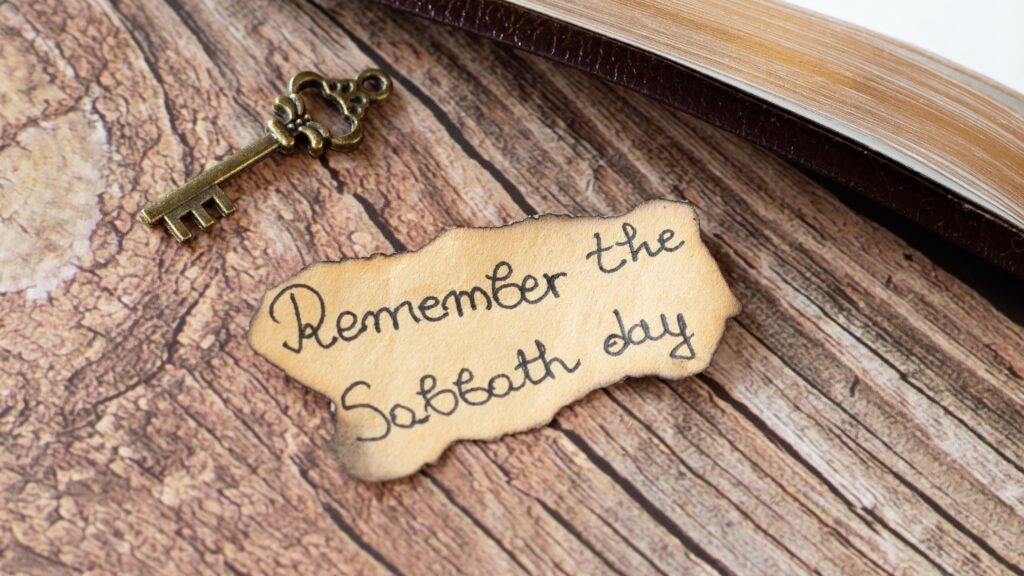
The Shabbath (Sabbath) is a not a moed per se, but it is the Fourth Commandment, first memorialized on the seventh day of Creation. Each Shabbath begins at sundown Friday to sundown Saturday. Another way to express the “eve(ning) of” in Hebrew is the word “erev”.
And on the seventh day Elohiym ended his work which he had made; and he rested on the seventh day from all his work which he had made. And Elohiym blessed the seventh day, and sanctified it: because that in it he had rested from all his work which Elohiym created and made.
Genesis 2:2-3
Later, on Mt. Sinai, Yahauh hallowed the Sabbath (Shabbath, in Hebrew) in stone with his own finger. If this is not significant enough for one considering the validity of this commandment or the necessity to observe it, then consider this: the Creator of the Universe also told us to REMEMBER the Sabbath day. It is the only commandment that he said to “remember” —that should remove any ambiguity about our requirement to observe this holy day.
Yahuah instructed Yashar’el regarding the gathering of manna:
And it shall come to pass, that on the sixth day they shall prepare את that which they bring in; and it shall be twice as much as they gather daily.
Exodus 16:5
And he said unto them, This is that which Yahuah has said, Tomorrow is the rest of the Holy Shabbath unto Yahuah: את bake that which ye will bake today, and את seethe that ye will seethe; and את that which remains over lay up for you to be kept until the morning.
Exodus 16:23
So, we see that Yashar’el was instructed to prepare their food for Sabbath on the prior day so that they would do no work on the day of rest. Today we use the “preparation day”, Thursday, to prepare easy meals to enjoy on the Shabbath so that the day can be devoted to rest, fellowship and prayerful time with Yahuah.
The Passover (Pecach) – Appointed Assembly
Unleavened Bread (Matstsach) – Feast, Barley Harvest
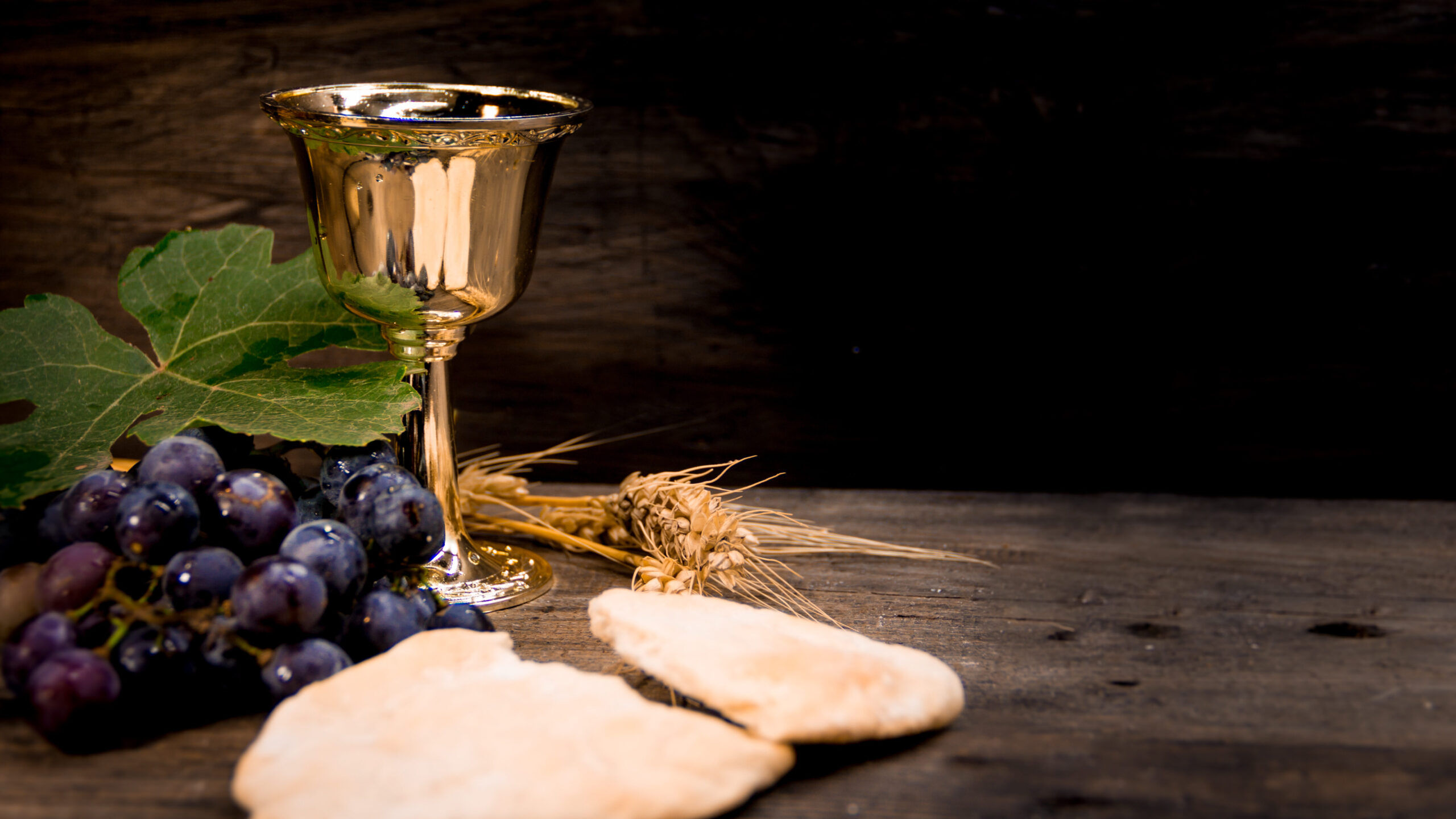
These are the feasts of Yahuah, even holy assemblies, which ye shall proclaim in their appointed times. In the fourteenth day of the first month at even is Yahuah’s Pecach. And on the fifteenth day of the same month is the Feast of Matstsah unto Yahuah: seven days ye must eat matstsah. In the first day ye shall have a holy assembly: ye shall do no servile work therein. But ye shall offer an offering made by fire unto Yahuah seven days: in the seventh day is a holy assembly: ye shall do no servile work therein.
Leviticus 23:4-8
We see in these verses that Scripture teaches that Yah’s Passover is the 14th day of the first month. The next day begins the Feast of Unleavened bread, and it is observed for seven days. The first and seventh day of Unleavened bread are holy assemblies, and no servile work shall be done.
Speak unto the children of Yashar’el, saying, If any man of you or of your posterity shall be unclean by reason of a dead body, or be in a journey afar off, yet he shall keep the Pecach unto Yahuah. The fourteenth day of the second month at even they shall keep it, and eat it with matstsah and bitter herbs.
Numbers 9:10-11
Yahuah makes an optional day available in the second month to observe Passover if we are prevented from observing it on the first month. On Pecach, we were told to eat matstsah and bitter herbs.
You shall therefore sacrifice the Pecach unto Yahuah Elohayka, of the flock and the herd, in the place which Yahuah shall choose to place his name there. You shall eat no chamets with it; seven days shall you eat matstsah therewith, even the bread of affliction; for you came forth out of the land of Mitsrayim in haste: that you may remember the day when you came forth out of the land of Mitsrayim all the days of your life. And there shall be no chamets seen with you in all your coast seven days; neither shall there anything of the flesh, which you sacrificed the first day at evening, remain all night until the morning. You may not sacrifice the Pecach within any of your gates, which Yahuah Elohayka gives you: But at the place which Yahuah Elohayka shall choose to place his name in, there you shall sacrifice the Pecach at evening, at the going down of the sun, at the season that you came forth out of Mitsrayim.
Deuteronomy 16:2-6
We are told to celebrate Pecach “in the place which Yahuah shall choose to place his Name. When Yashar’el wandered in the wilderness, Yahuah placed his name in the Sanctuary built in the desert. Later, Yahuah placed his name in the temple of Solomon. After the Babylonian captivity, the rebuilt Temple, to include Herod’s construction it is not clear that the Shikinah glory was present in the second Temple. Many say that we do not have to celebrate Pecach unless we can go to Jerusalem. Where does Yahuah place his Name today? Where is his Temple today?
Know ye not that ye are the Temple of Elohiym, and that the Ruach Elohiym dwells in you? If any man defile the Temple of Elohiym, him shall Elohiym destroy; for the Temple of Elohiym is holy, which Temple ye are.
1 CORINTHIANS 3:16-17
Those of us who have received a love of the Truth truly represent him. That means we understand that Yahusha is the Word made flesh. He fulfilled the Father’s commandments perfectly through his life. He was without. He died a sacrificial death to heal the rift of sin which the first Adam created. He told us at his last meal “For this is my blood of the Renewed Covenant, which is shed for many for the remission of sins.” Matthew 26:28. This was the fulfillment of Jeremiah 31:31-34 where Yah promised to write his law on the “tablets” of our hearts and minds. Accepting the Sacrifice of his life, we consent to believe and obey his commandments and allow ourselves to be transformed as much as possible in our earthly bodies. As we become yachad (one) with the Father and the Son we grow into the spiritual oneness that will be complete when Yahusha comes. This is what motivates our lives. Only in this way does one become the Temple where Yahuah places his Name! We see this same principle at work in the discussion Yahusha had with the Samaritan woman.
We see Yahusha discussing the place of worship with the Samaritan woman:
Our fathers worshipped in this mountain; and ye say, that in Yerushalayim is the place where men ought to worship. Yahusha said unto her, Woman, believe me, the hour comes, when ye shall neither in this mountain, nor yet at Yerushalayim, worship the Father. Ye worship ye know not what: we know what we worship: for yeshu`ah is of the Yahudiym. But the hour comes, and now is, when the true worshippers shall worship the Father in ruach and in truth: for the Father seeks such to worship him. Elohiym is that Ruach: and they that worship him must worship him in Ruach and in truth.
John 4:20-24
Paul expounds on this concept is his discussion of Yahusha as our High Priest.
NOW of the things which we have spoken this is the sum: We have such a High Priest, who is set on the right hand of the throne of the Majesty in the heavens; A minister of the sanctuary, and of the true Tabernacle, which Yahuah pitched, and not man. For every high priest is ordained to offer gifts and sacrifices: wherefore it is of necessity that this man have somewhat also to offer. For if he were on earth, he should not be a priest, seeing that there are priests that offer gifts according to the Torah: Who serve unto the example and shadow of heavenly things, as Mosheh was admonished of Elohiym when he was about to make the Tabernacle: for, See, says he, that you make all things according to the pattern showed to you in the Mount. But now has he obtained a more excellent ministry, by how much also he is the mediator of a better covenant, which was established upon better promises.
Hebrews 8:1-6
Purge out therefore the old leaven, that ye may be a new lump, as ye are matstsah. For even Mashiach our Pecach is sacrificed for us: Therefore let us keep the Feast, not with old leaven, neither with the leaven of malice and wickedness; but with the matstsah of sincerity and truth.
1 CORINTHIANS 5:7-8
Yahusha Ha’Mashiach is our Pecach—the prophesy Yahusha made through John is made manifest: John 4:23-24 “But the hour comes, and now is, when the true worshippers shall worship the Father in ruach and in truth: for the Father seeks such to worship him. Elohiym is that Ruach: and they that worship him must worship him in ruach and in truth.”
Amazing Love, that we can partake of the better covenant established on better promises!
The Unleavened Bread describes Yahusha’s sinless life. Leaven (chamets) is symbolic of sin throughout the Scriptures. Yahusha was without sin and therefore a blameless, spotless, perfect sacrifice for our sin. Yahusha’s body remained in the grave during the beginning days of this feast. He, like a planted seed, would resurrect into new life.
What is chamets?
Chamets is a leavening agent. It is added to wheat flour so that it will “rise”. Without leavening, bread would be dry and flat, similar to a cracker. This is called “unleavened bread”, or “matstsah.” As Yashar’el prepared to flee Egypt, Yahuah said, “seven days shall you eat matstsah therewith, even the bread of affliction; for you came forth out of the land of Mitsrayim in haste: that you may remember the day when you came forth out of the land of Mitsrayim all the days of your life.” We also eat matstsah to remember that as Yashar’el was brought out of bondage from Egypt, Yahusha Ha’Mashiach can bring us out from the bondage of sin if we choose salvation. Yahuah tells us in Deuteronomy 16:4 to remove all leaven from our homes for this week of Unleavened bread.
Spiritually speaking, chamets symbolizes sin. These might be sinful habits, ill feelings toward other; it is anything that restricts our spirit and our relationship with Yah and with our brothers and sisters.
Paul speaks about chamets in 1 Corinthians 5:7-8
Purge out therefore the old leaven, that ye may be a new lump, as ye are matstsah. For even Mashiach our Pecach is sacrificed for us: Therefore let us keep the Feast, not with old leaven, neither with the leaven of malice and wickedness; but with the matstsah of sincerity and truth.
1 CORINTHIANS 5:7-8
Not only do these verses from Paul explain chamets, but it also testifies that Paul, as well as the other disciples (Acts 20:6) observed the Feasts after Mashiach ascended into heaven. These are verses which can be used to defend the observance of the Feasts.
Firstfruits (Bikkoor) – Appointed Assembly
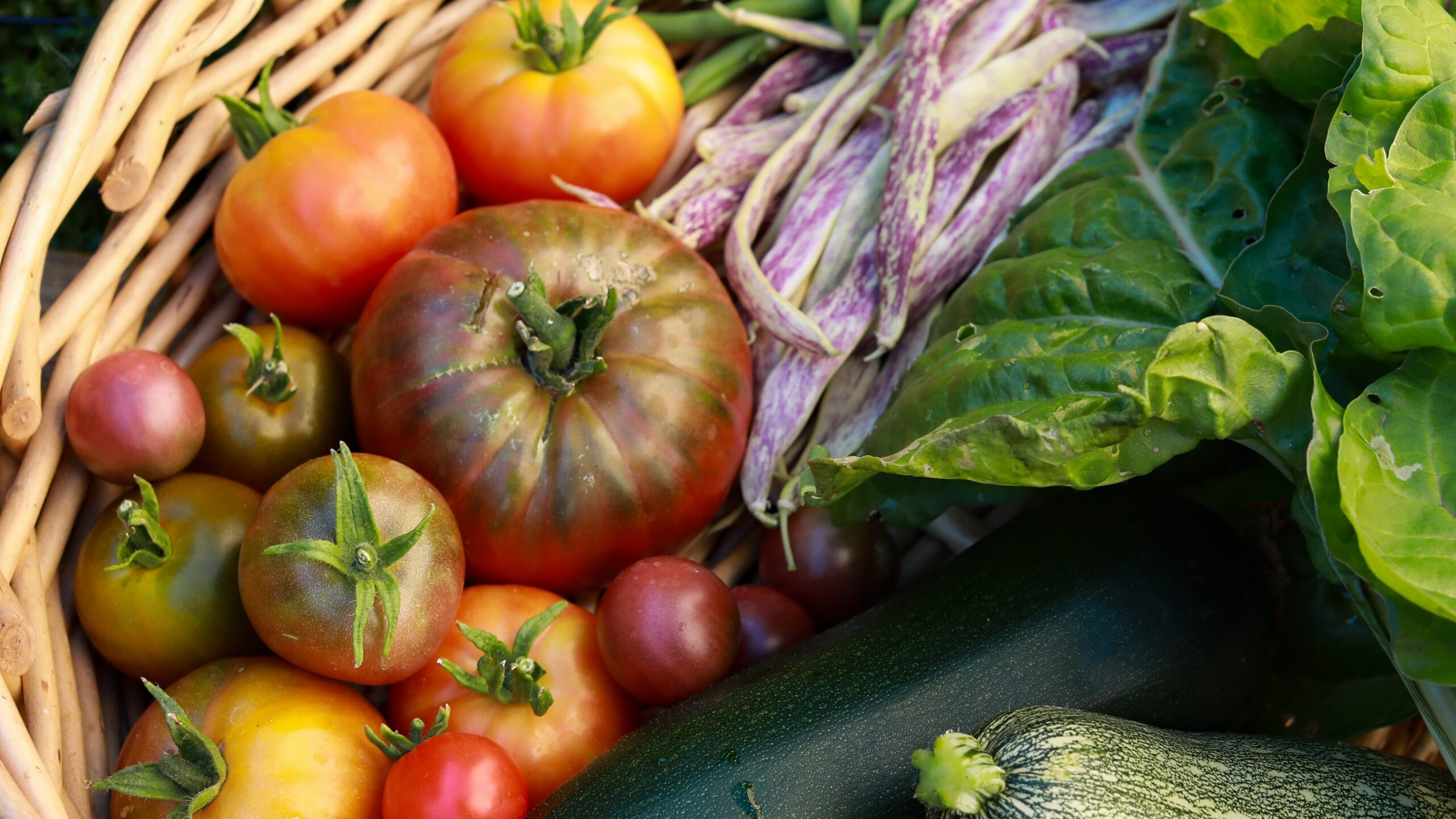
And Yahuah spoke unto Mosheh, saying, Speak unto the children of Yashar’el, and say unto them, When ye are come into the land which I give unto you, and shall reap the harvest thereof, then ye shall bring a sheaf of the firstfruits of your harvest unto the priest: And he shall wave the sheaf before Yahuah, to be accepted for you: on the morrow after the Shabbath the priest shall wave it. And ye shall offer that day when ye wave the sheaf a he lamb without blemish of the first year for an ascending smoke offering unto Yahuah. And the oblation thereof shall be two tenth deals of fine flour mingled with oil, an offering made by fire unto Yahuah for a sweet savor: and the drink offering thereof shall be of wine, the fourth part of a hin. And ye shall eat neither bread, nor parched grain, nor green ears, until the selfsame day that ye have brought an offering unto your Elohiym: it shall be a statute forever throughout your generations in all your dwellings.
Leviticus 23:9-14
For it is the Feast of Shavu’oth and the Feast of Firstfruits of the wheat harvest: this feast is twofold and of a double nature: according to what is written and engraven concerning it, celebrate it. For I have written in the cepher of the first Torah, in that which I have written for you, that you should celebrate it in its season, one day in the year, and I explained to you its sacrifices that the children of Yashar’el should remember and should celebrate it throughout their generations in this month, one day in every year. And on the New Moon of the first month, and on the New Moon of the fourth month, and on the New Moon of the seventh month, and on the New Moon of the tenth month are the days of remembrance, and the days of the seasons in the four divisions of the year. These are written and ordained as a testimony forever. And Noach ordained them for himself as feasts for the generations forever,
Jubiless 6:21-24
Paul tells us that Maschiach is the single sheaf that is waived before the Father. …the First Fruits from the dead. The crucifixion of the sinless Son of Yahuah was the only sacrifice that could redeem us from our sin! And because he was resurrected from the grave by the Father, Maschiach became the living manifestation of First Fruits.
But now is Mashiach risen from the dead, and become the firstfruits of them that slept. For since by man came death, by man came also the resurrection of the dead. For as in A’dam all die, even so in Mashiach shall all be made alive. But every man in his own order: Mashiach the firstfruits; afterward they that are Mashiach’s at his coming.
1 CORINTHIANS 15:20-23
(N.B. notice the verse states “they that are Maschiach’s at his coming.” This points to the reality that not all “belong to Messiah.” )
Scripture tells us to “count the omer” from First Fruits to Shavu’ot
And ye shall count unto you from the morrow after the Shabbath, from the day that ye brought the sheaf of the wave offering; seven Shabbaths shall be complete: Even unto the morrow after the seventh Shabbath shall ye number fifty days; and ye shall offer a renewed oblation unto Yahuah.
Leviticus 23:15-16
Seven weeks shall you number unto you: begin to number the seven weeks from such time as you begin to put the sickle to the grain. And you shall keep the Feast of Shavu’oth unto Yahuah Elohayka with a tribute of a freewill offering of your hand, which you shall give unto Yahuah Elohayka, according as Yahuah Elohayka has blessed you:
Deuteronomy 16:9-10
Pentecost also Weeks (Shavu’oth) – Feast, Wheat Harvest
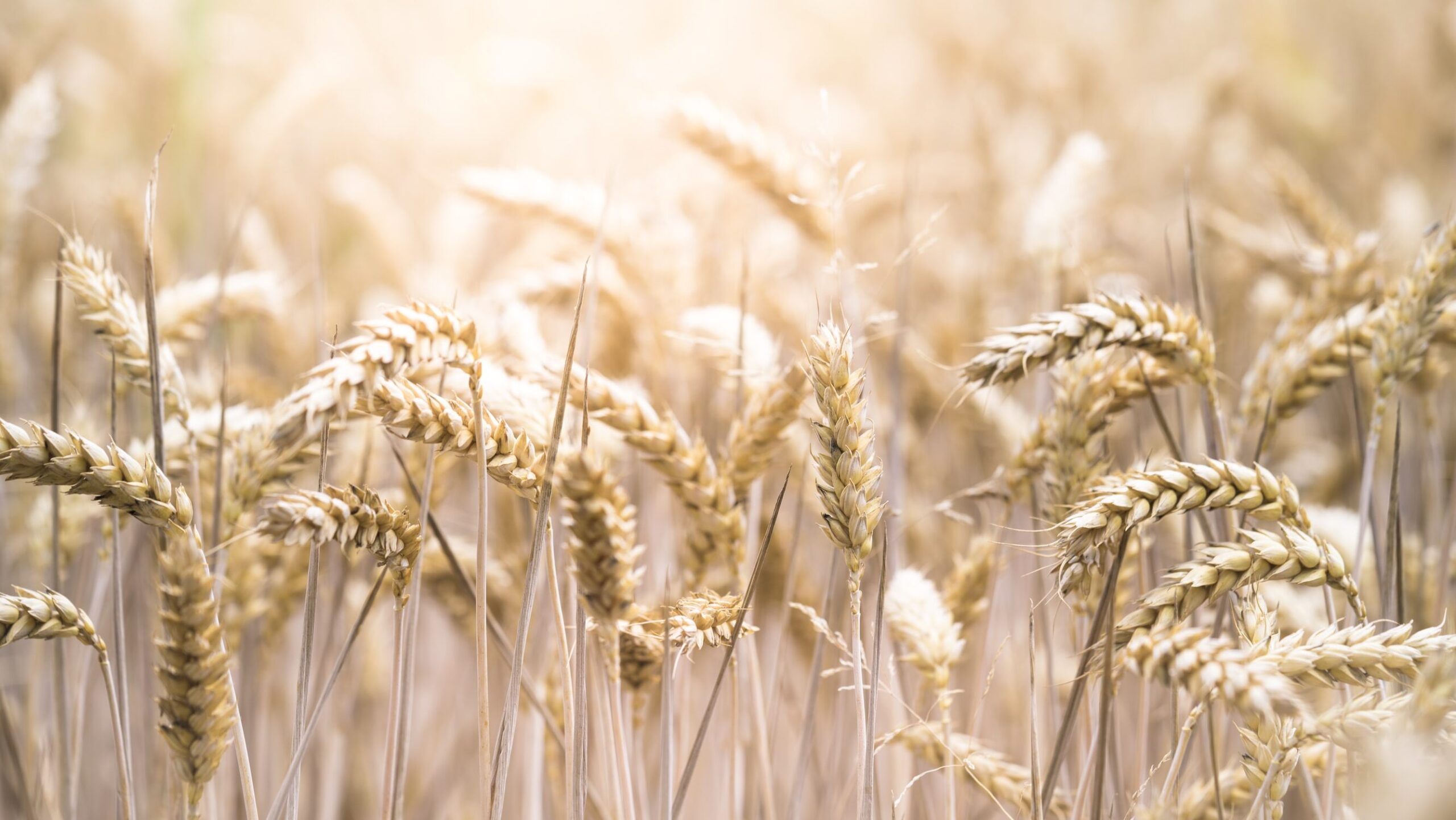
And you shall keep the Feast of Shavu’oth unto Yahuah Elohayka with a tribute of a freewill offering of your hand, which you shall give unto Yahuah Elohayka, according as Yahuah Elohayka has blessed you: And you shall rejoice before Yahuah Elohayka, you, and your son, and your daughter, and your manservant, and your maidservant, and the Leviyiy that is within your gates, and the stranger, and the fatherless, and the widow, that are among you, in the place which Yahuah Elohayka has chosen to place his name there. And you shall remember that you were a bondman in Mitsrayim: and you shall guard and do these statutes.
Deuteronomy 16:10-12
And he gave to Noach and his sons a sign that there should not again be a flood on the earth. He set his bow in the cloud for a sign of the eternal covenant that there should not again be a flood on the earth to destroy it all the days of the earth. For this reason it is ordained and written on the heavenly tablets, that they should celebrate the Feast of Shavu’oth in this month once a year, to renew the covenant every year. And this whole feast was celebrated in heaven from the day of creation till the days of Noach twenty six jubilees and five weeks of years: and Noach and his sons observed it for seven jubilees and one week of years, till the day of Noach’s death, and from the day of Noach’s death his sons did away with it until the days of Avraham, and they ate blood. But Avraham observed it, and Yitschaq and Ya`aqov and his children observed it up to your days, and in your days the children of Yashar’el forgot it until ye celebrated it anew on this mountain. And do you command the children of Yashar’el to observe this feast in all their generations for a commandment unto them: one day in the year in this month they shall celebrate the feast.
Jubilees 6:15-20
It was at Pentecost (Acts 2) that Yahusha sent the Holy Spirit. Peter preached and about 3,000 Jews responded to his proclamation of the gospel.
Trumpets (Yom Teruah) – Appointed Assembly

And Yahuah spoke unto Mosheh, saying, Speak unto the children of Yashar’el, saying, In the seventh month, in the first day of the month, shall ye have a Shabbath, a memorial of blowing of shofars, a holy assembly. Ye shall do no servile work therein: but ye shall offer an offering made by fire unto Yahuah.
Leviticus 23:23-25
Yom Teru’ah means the “day of shouting or blasting”. We are commanded to blow the shofars or trumpets. Strong’s H 8643 from H7321 means “clamor”, “acclamation of joy”, or “battle cry”, “joy” or “loud noise”, or “battle cry”. Also, “jubilee”, “loud rejoicing”. Sounds like something victorious, doesn’t it?
We remember Yahusha was presented with an obstacle to entering the Promised Land and Yahuah assigned the people actions that culminated after 7 days with shouts and blowing the trumpets and what happened? The walls of Jericho came tumbling down! Joshua 6:4-5
So, our obligation on this day is to have a day of rest and blow our trumpets. We are also faced with “walls of Jericho” as we walk the Narrow Way. It is also a time of repentance and seeking the Father as the Feast of Yom Kippur approaches.
Why repentance?
If they shall confess their iniquity, and the iniquity of their fathers, with their transgression which they transgressed against me, and that also they have walked contrary unto me; And that I also have walked contrary unto them, and have brought them into the land of their enemies; if then their uncircumcised hearts be humbled, and they then accept of the punishment of their iniquity: Then will I remember my covenant with Ya`aqov, and also my covenant with Yitschaq, and also my covenant with Avraham will I remember; and I will remember the land.
Leviticus 26:40-42
Yom Teru’ah is also a prophetic Feast that points to the return of the Messiah,
“For Yahuah himself shall descend from heaven with a shout, with the voice of the archangel, and with the shofar of Elohiym: and the dead in Mashiach shall rise first: “
1 Thessalonians 4:16
When Messiah returns, the sound of the shofar also indicates his “battle cry.
And I saw heaven opened, and behold a white horse; and he that sat upon him was called Faithful and True, and in righteousness he judges and makes war. His eyes were as a flame of fire, and on his head were many crowns; and he had a name written, that no man knew, but he himself. And he was clothed with a vesture dipped in blood: and his name is called The Word of Elohiym. And the armies which were in heaven followed him upon white horses, clothed in fine linen, white and clean. And out of his mouth goes a sharp sword, that with it he should smite the nations: and he shall rule them with a rod of iron: and he treads the winepress of the fierceness and wrath of Yahuah Tseva’oth.
Revelation 19:11-15
Today, our offering made by fire is our total commitment to renounce our sinful nature and our dedication to walk in holiness. Walking in holiness means walking in total obedience to Yahuah. It means following his commandments. His commandments in the renewed covenant are written on our hearts and on our minds if we choose to accept Yahusha as our Savior, we do not proclaim and cling to the words, “I am a sinner.” We say. “I am walking with Yah, who shows me how to walk in holiness according to his Word.”
“…offer your bodies as living sacrifices, holy and pleasing to Yah which is your spiritual service of worship.”
Romans 12:1
Yom Teru’ah then is a solemn day of rest in which no servile work is done. We shout and blow our shofars to Yahuah, as we wait for the return of Yahusha Ha’Mashiach!
The Day of Atonement (Yom Kippur) – Appointed Assembly

And Yahuah spoke unto Mosheh, saying, Also on the tenth day of this seventh month is Yom Kippuriym: it shall be a holy assembly unto you; and ye shall afflict your souls, and offer an offering made by fire unto Yahuah. And ye shall do no work in that same day: for it is Yom Kippuriym, to make an atonement for you before Yahuah Elohaykem. For whatsoever soul it be that shall not be afflicted in that same day, he shall be cut off from among his people. And whatsoever soul it be that does any work in that same day, the same soul will I destroy from among his people. Ye shall do no manner of work: it shall be a statute forever throughout your generations in all your dwellings. It shall be unto you a Shabbath of rest, and ye shall afflict your souls: in the ninth day of the month at evening, from evening unto evening, shall ye celebrate your Shabbath.
Leviticus 23:26-32
And this shall be a statute forever unto you: that in the seventh month, on the tenth day of the month, ye shall afflict your souls, and do no work at all, whether it be one of your own country, or a stranger that sojourns among you:
Leviticus 16:29
Scripture teaches us that Kom Kippur should be observed on the 10th day of the seventh month. This observance begins on the ninth day at sundown and continues on to the 10th day at sundown. We are to make atonement to Yahuah by prayer, repentance, confessing sins, and forgiving others. We are to “afflict our souls” which is accepted to mean “fasting” on that day.
Though we “make atonement” for our sins, we must remember, that we cannot atone ourselves. Atonement requires the shedding of blood, which had been done by shedding of the blood of an animal by a Levitical High Priest.
But Mashiach being come a High Priest of good things to come, by a greater and more perfect Tabernacle, not made with hands, that is to say, not of this building; Neither by the blood of goats and calves, but by his own blood he entered in once into the holy place, having obtained eternal redemption for us. For if the blood of bulls and of goats, and the ashes of a heifer sprinkling the unclean, sanctifies to the purifying of the flesh: How much more shall the blood of Mashiach, who through the eternal Ruach offered himself without spot to Elohiym, purge your conscience from dead works to serve the living Elohiym?
Hebrews 9:11-14
NOW of the things which we have spoken this is the sum: We have such a High Priest, who is set on the right hand of the throne of the Majesty in the heavens; A minister of the sanctuary, and of the true Tabernacle, which Yahuah pitched, and not man.
Hebrews 8:1-2
Tabernacles (Cukkoth) – Feast
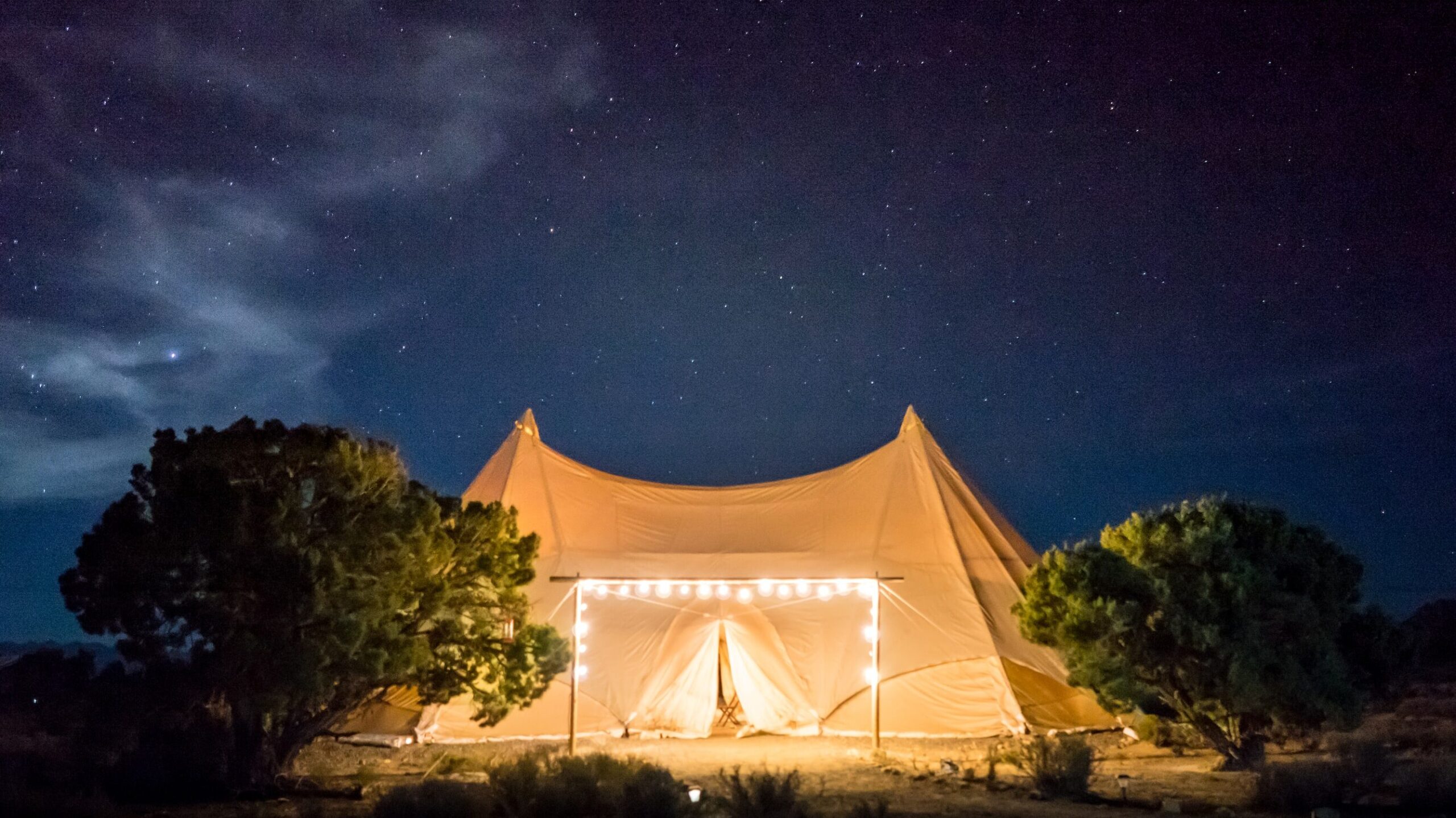
And Yahuah spoke unto Mosheh, saying, 34 Speak unto the children of Yashar’el, saying, The fifteenth day of this seventh month shall be the Feast of Cukkoth for seven days unto Yahuah. 35 On the first day shall be a holy assembly: ye shall do no servile work therein. 36 Seven days ye shall offer an offering made by fire unto Yahuah: on the eighth day shall be a holy assembly unto you; and ye shall offer an offering made by fire unto Yahuah: it is a solemn assembly; and ye shall do no servile work therein. 37 These are the feasts of Yahuah, which ye shall proclaim to be holy assemblies, to offer an offering made by fire unto Yahuah, an ascending smoke offering, and an oblation, a sacrifice, and drink offerings, everything upon his day: 38 Beside the Shabbaths of Yahuah, and beside your gifts, and beside all your vows, and beside all your freewill offerings, which ye give unto Yahuah. 39 Also in the fifteenth day of the seventh month, when ye have gathered in the fruit of the land, ye shall keep a feast unto Yahuah seven days: on the first day shall be a Shabbath, and on the eighth day shall be a Shabbath. 40 And ye shall take you on the first day the boughs of goodly trees, branches of palm trees, and the boughs of thick trees, and willows of the brook; and ye shall rejoice before Yahuah Elohaykem seven days. 41 And ye shall keep it a feast unto Yahuah seven days in the year. It shall be a statute forever in your generations: ye shall celebrate it in the seventh month. 42 Ye shall dwell in cukkoth seven days; all that are Yashar’el born shall dwell in cukkoth: 43 That your generations may know that I made the children of Yashar’el to dwell in cukkoth, when I brought them out of the land of Mitsrayim: I am Yahuah Elohaykem. 44 And Mosheh declared unto the children of Yashar’el the feasts of Yahuah.
Leviticus 23:33-44
State of the World: Christians frequently regard the Feasts of Yahuah as “Jewish Feasts”,and use this as their excuse to disregard them. Likewise, Christianity has marginalized the Old Testament, and so dismiss its counsel altogether. Ironically, much of the New Testament verses are taken directly from the Old Testment and because Christians are not familiar with the Old Testament, they miss its relevance to their lives.
Yahuah predicted how he would be perceived by man. Christianity and Judaism bear witness to this truth.
“And they will forget all My Torah and all My commandments and all My judgements, and will go astray as to new months, Shabbaths, and festivals and jubilees, and ordinances.”
Jubiliees 1:14
BUT in the last days it shall come to pass, that the mountain of the house of Yahuah shall be established in the top of the mountains, and it shall be exalted above the hills; and people shall flow unto it. And many nations shall come, and say, Come, and let us go up to the mountain of Yahuah, and to the house of the Elohai of Ya`aqov; and he will teach us of his ways, and we will walk in his paths: for the Torah shall go forth of Tsiyon, and the Word of Yahuah from Yerushalayim. And he shall judge among many people, and rebuke strong nations afar off; and they shall beat their swords into plowshares, and their spears into pruninghooks: nation shall not lift up a sword against nation, neither shall they learn war anymore. But they shall sit every man under his vine and under his fig tree; and none shall make them afraid: for the mouth of Yahuah Tseva’oth has spoken it. For all people will walk everyone in the name of his elohiym, and we will walk in the name of Yahuah Elohaynu forever and ever. In that day, says Yahuah, will I assemble her that halts, and I will gather her that is driven out, and her that I have afflicted; And I will make her that halted a remnant, and her that was cast far off a strong nation: and Yahuah shall reign over them in Mount Tsiyon from henceforth, even forever.
Micah 4:1-7
HALLELUYAH! PRAISE YAH!
Resources:
All Scriptural citations are taken from Eth Cepher, Cepher Publishing Group, LLC utilizing the e-Sword, an electronic Scripture resource.
Some concepts derived from @unlearnthelies site



